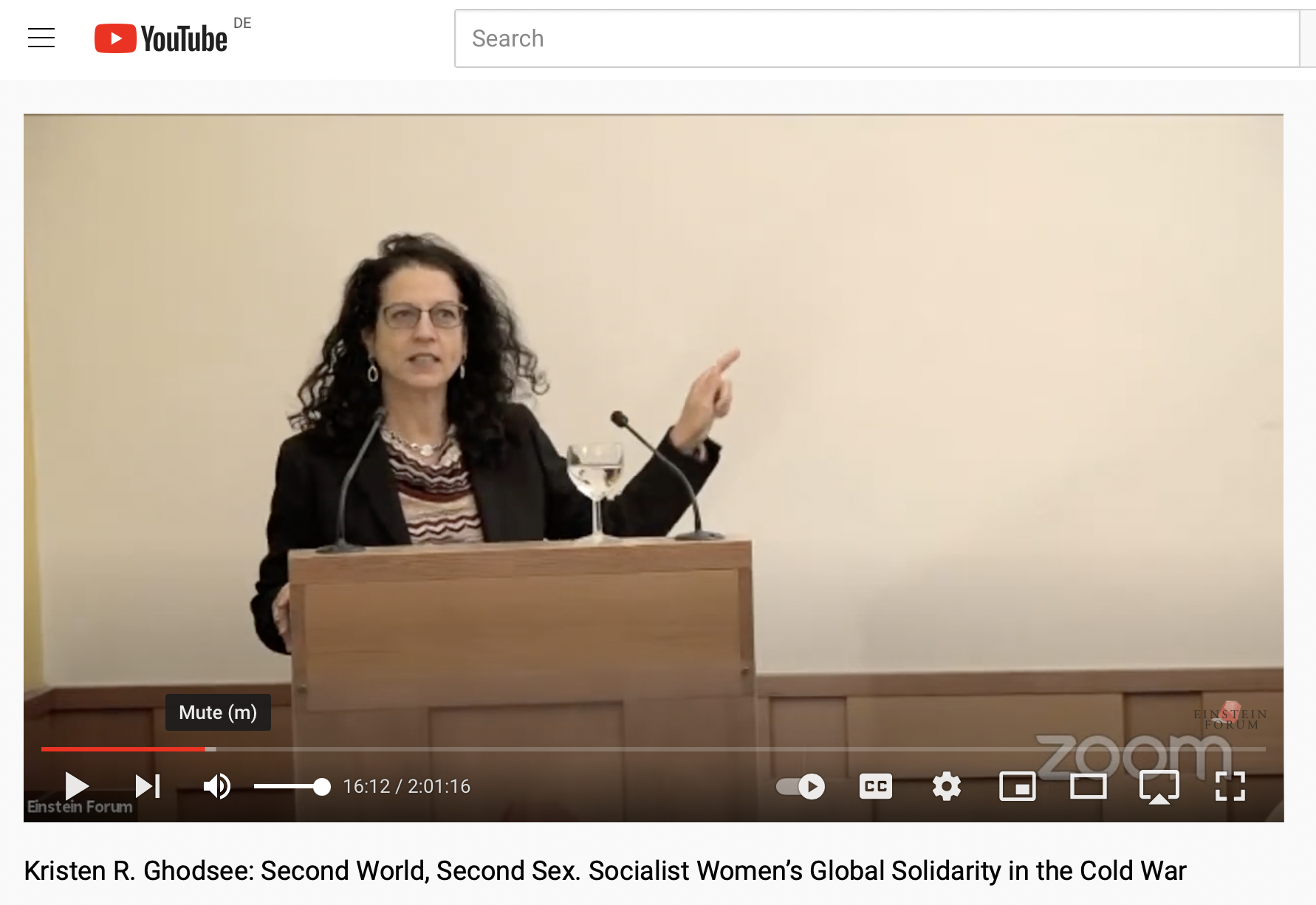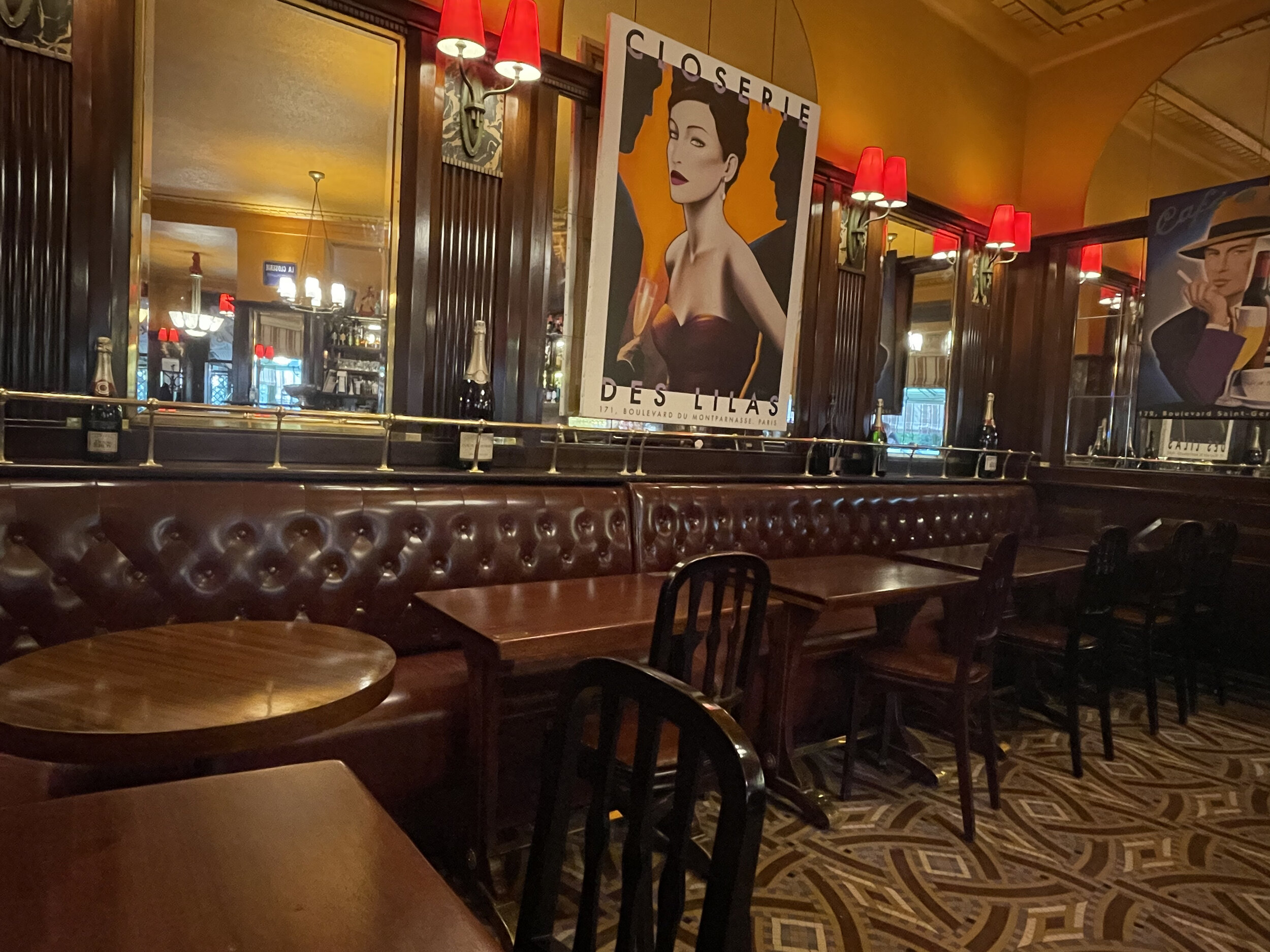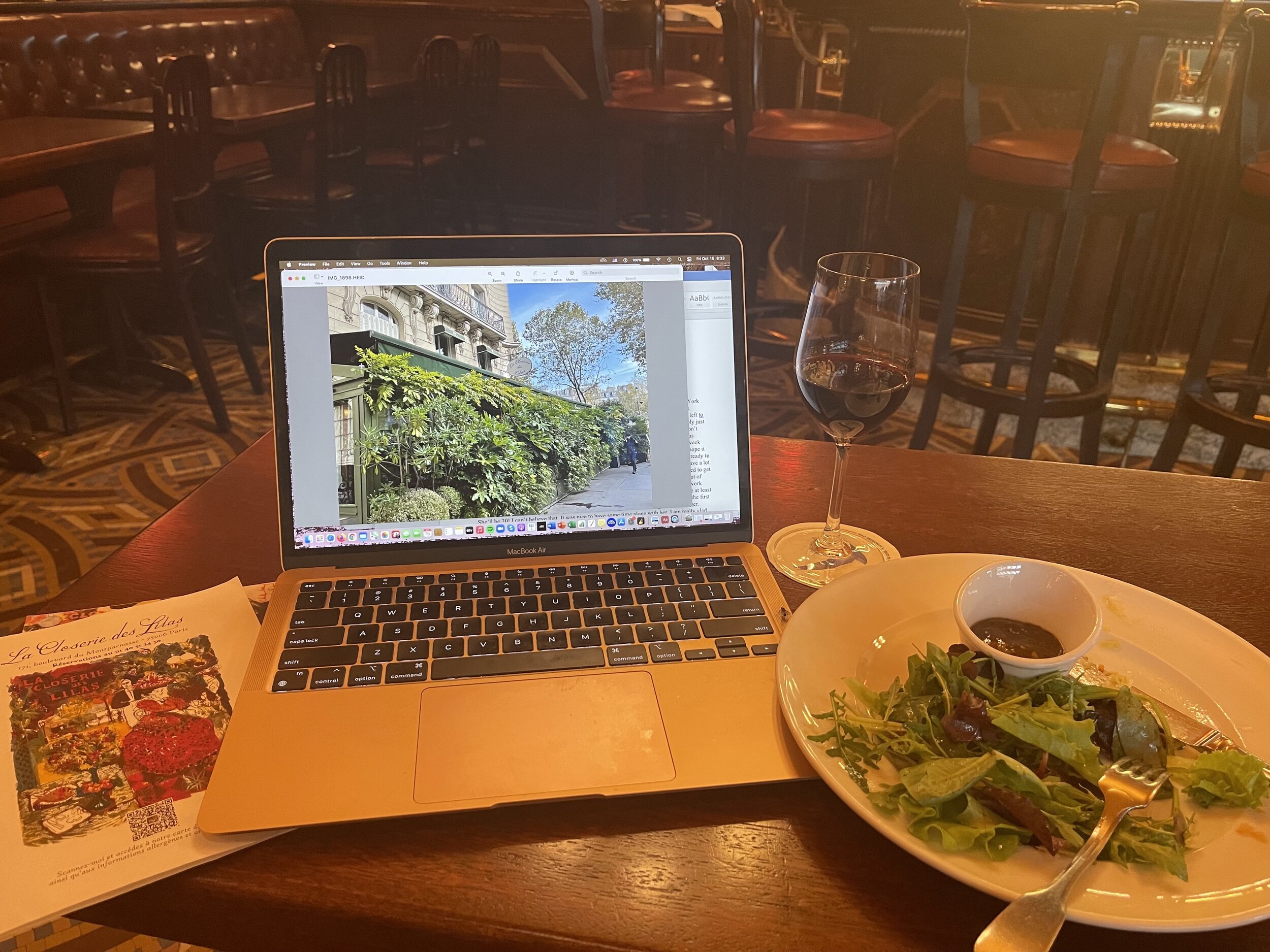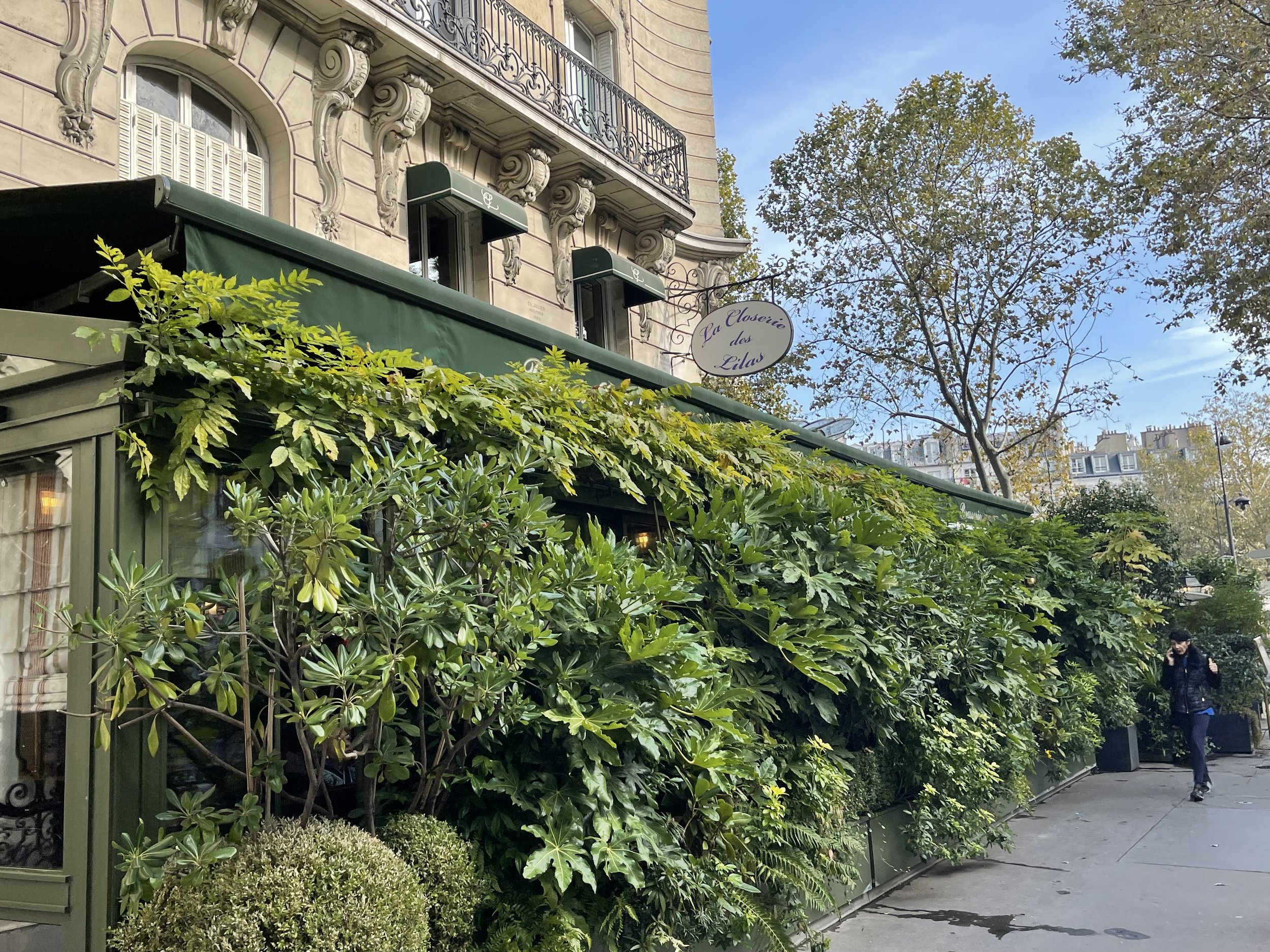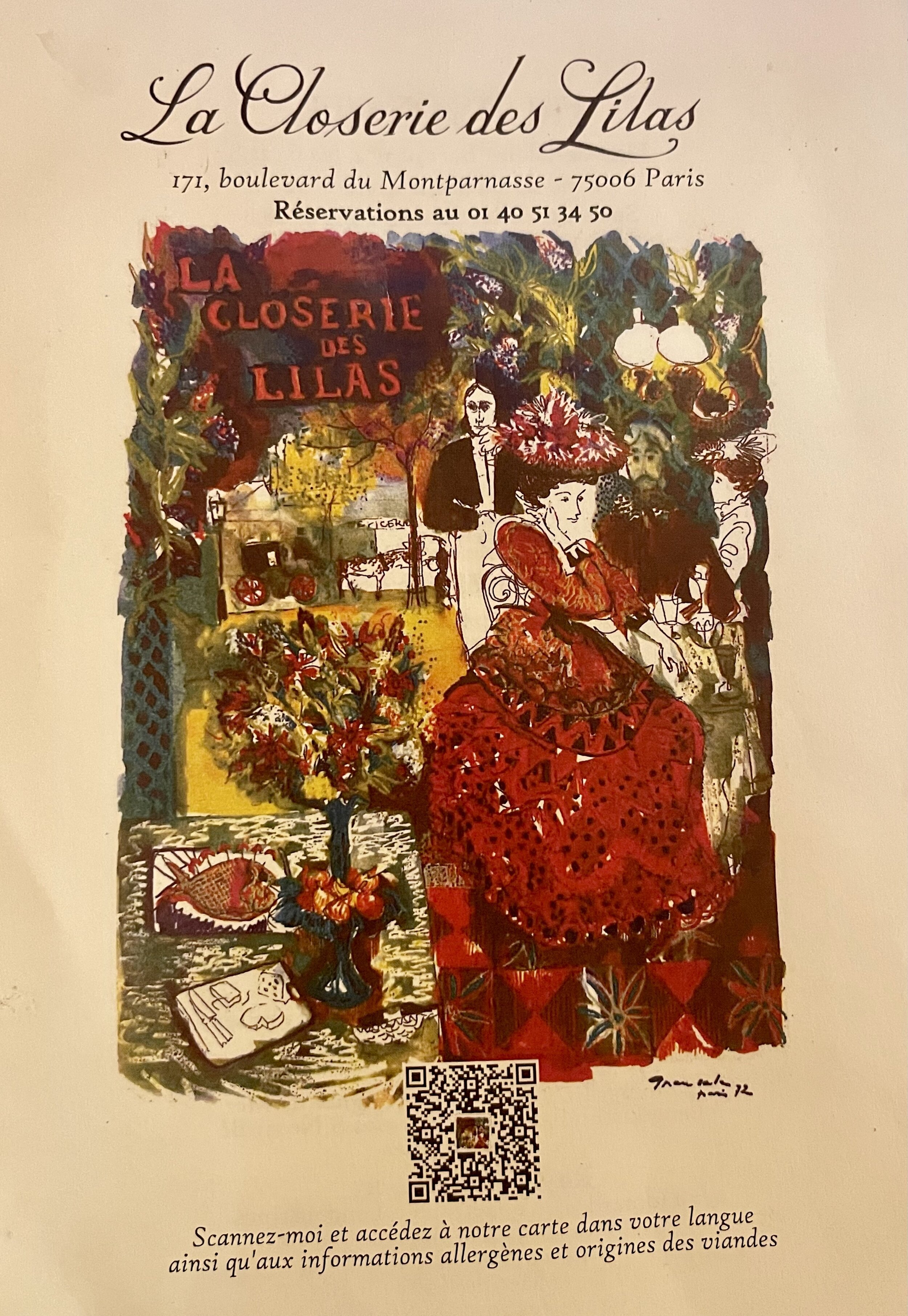“For Albania, Capitalism’s Promise of Freedom Soon Turned Sour,” Jacobin Magazine, November 11, 2021
Project Syndicate Op-Ed Translated into Russian →
New opinion piece for Project Syndicate →
Why Won't Eastern Europeans Get Vaccinated?
Nov 8, 2021
KRISTEN GHODSEE, MITCHELL A. ORENSTEIN
The region’s high degree of vaccine skepticism and surging death rates do not reflect the lingering effects of decades of communist rule, but rather the decades-long social consequences of its collapse. Many countries in the region have not yet reversed the profound erosion of public trust that began after 1989.
I spent a lovely hour in Siberia this morning
Well, at least virtually. I was the guest on a panel at the Krasnoyarsk Book Fair.
New subtitle for Red Valkyries
The Verso marketing folks have weighed in and changed my subtitle. One thing about trade publishing (or crossover publishing) is how much less control the author has on things like titles and subtitles. But this was a good compromise and I think it still captures the spirit of the book. Here’s also the new descriptive copy:
The overlooked revolutionary women of Eastern Europe and their contribution to socialist feminist history, from the author of Why Women Have Better Sex Under Socialism.
Through a series of lively and accessible biographical essays, Red Valkyries explores the history of socialist feminism by examining the revolutionary careers of five prominent socialist women active in the 19th and 20th centuries.
• Alexandra Kollontai, the aristocratic Bolshevik
• Nadezhda Krupskaya, the radical pedagogue
• Inessa Armand, the polyamorous firebrand
• Lyudmila Pavlichenko, the deadly sniper
• Elena Lagadinova, the partisan turned scientist turned global women's rights activist
None of these women were “perfect” leftists. Their lives were filled with inner conflicts, contradictions, and sometimes outrageous privilege, but they still managed to move forward their own political projects through perseverance and dedication to their cause.
Always walking a fine line between the need for class solidarity and the desire to force their sometimes callous male colleagues to take women’s issues seriously, these five women fought for social change with important lessons for feminist activists today.
In brief conversational chapters Ghodsee tells the story of the personal challenges faced by earlier generations of socialist and communist women and renders the big ideas of socialist feminism accessible to those newly inspired by the emancipatory politics of left feminist movements around the globe.
New podcast on Taking Stock of Shock with Reimagining Soviet Georgia →
More views of beautiful Belgrade
I am just loving the energy of this city. The weather has been phenomenal. I am the consummate flâneur these days, just walking the vibrant streets of Serbia’s capital city, meeting colleagues, and chasing typewriters.
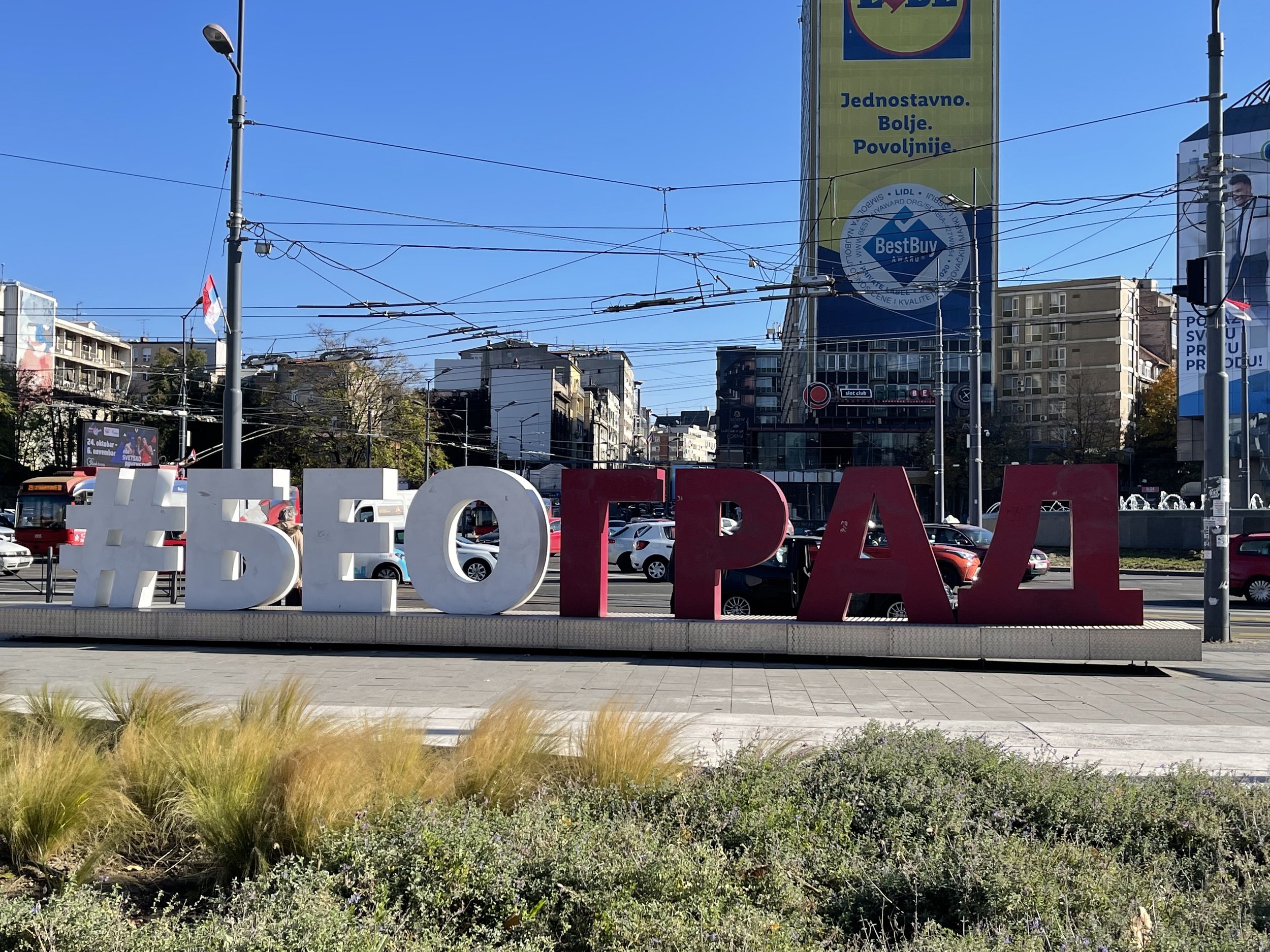



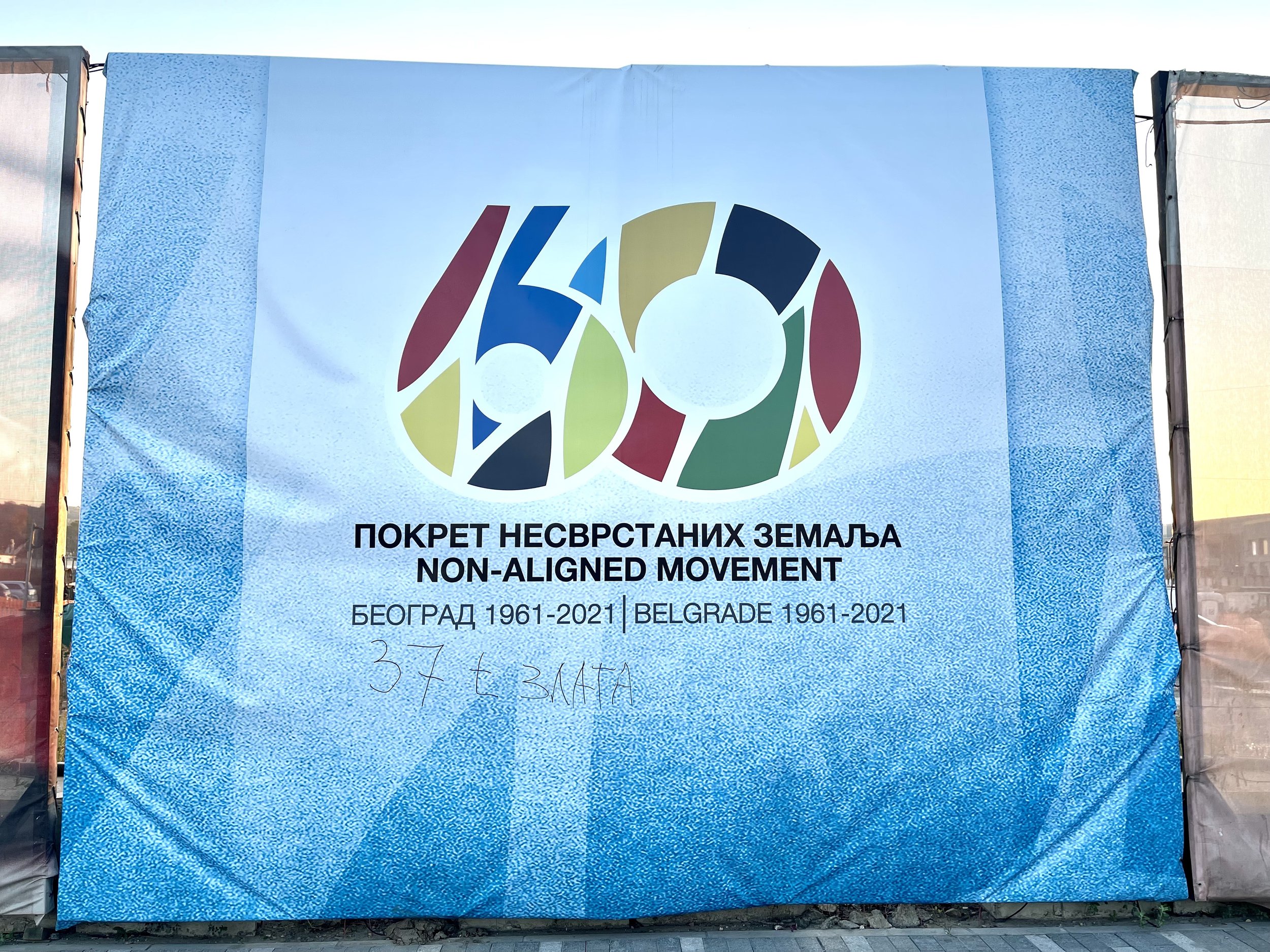





Sunset over the confluence of the Danube and Sava Rivers
And more sights from Belgrade

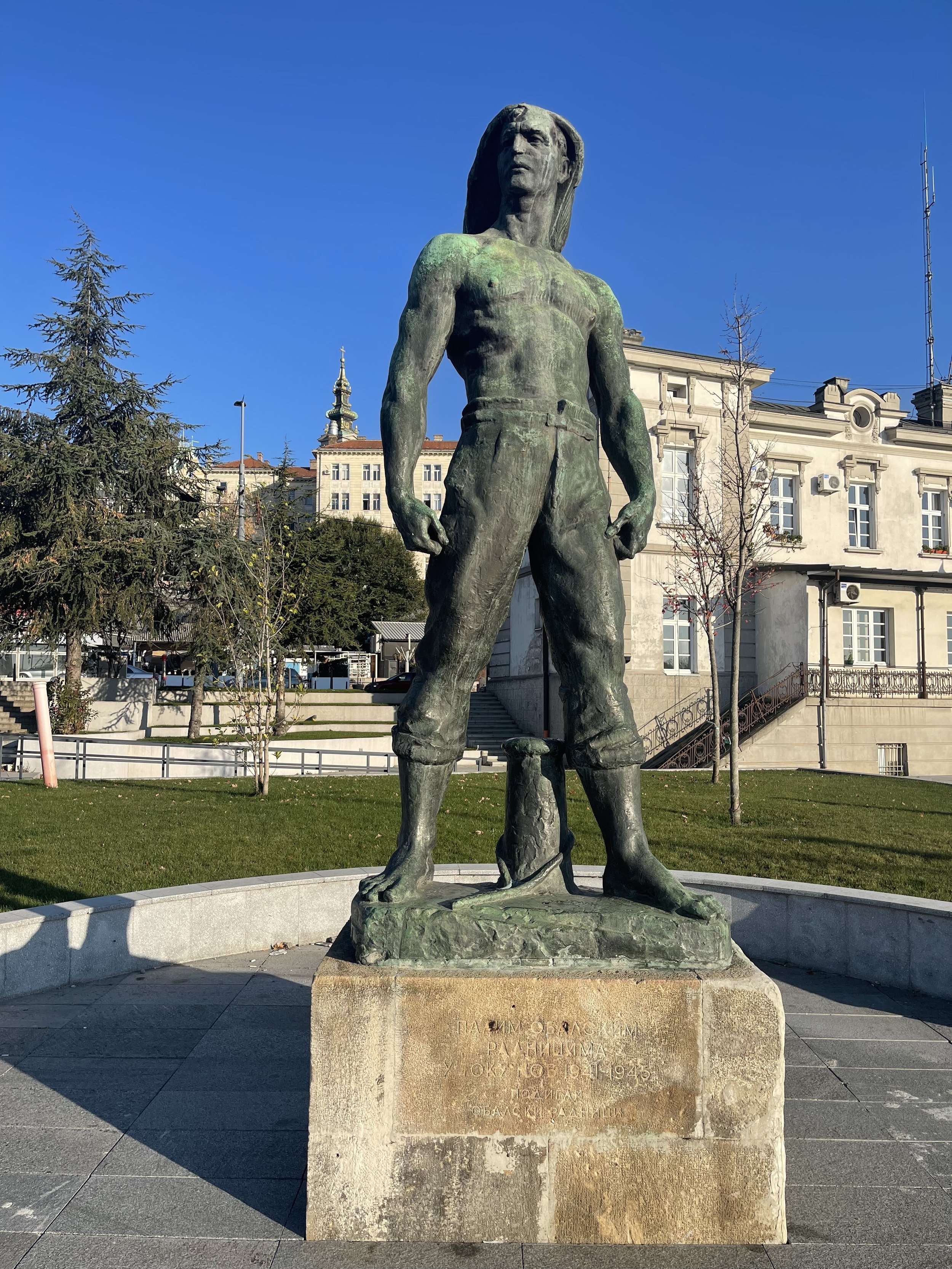
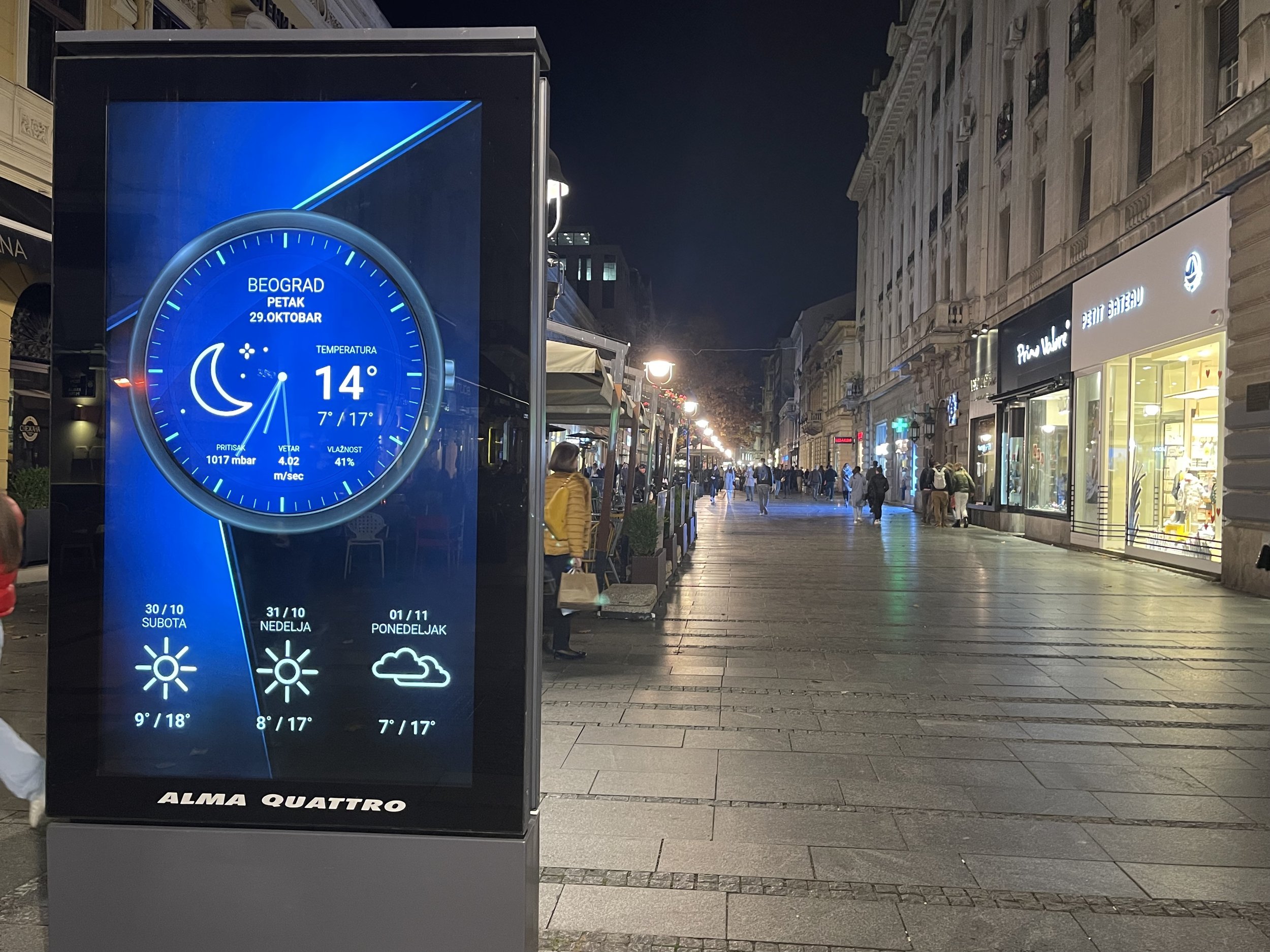

New author photos by the amazing Elena Hmeleva
I did a photoshoot with the amazing Elena Hmeleva in Paris earlier this month because I needed some updated professional author photos, and these are some of the results. I was quite uncomfortable at first, but she was a pro and got me to relax and enjoy myself. I especially love how Elena managed to evoke the spirit of Paris in so many of the images.
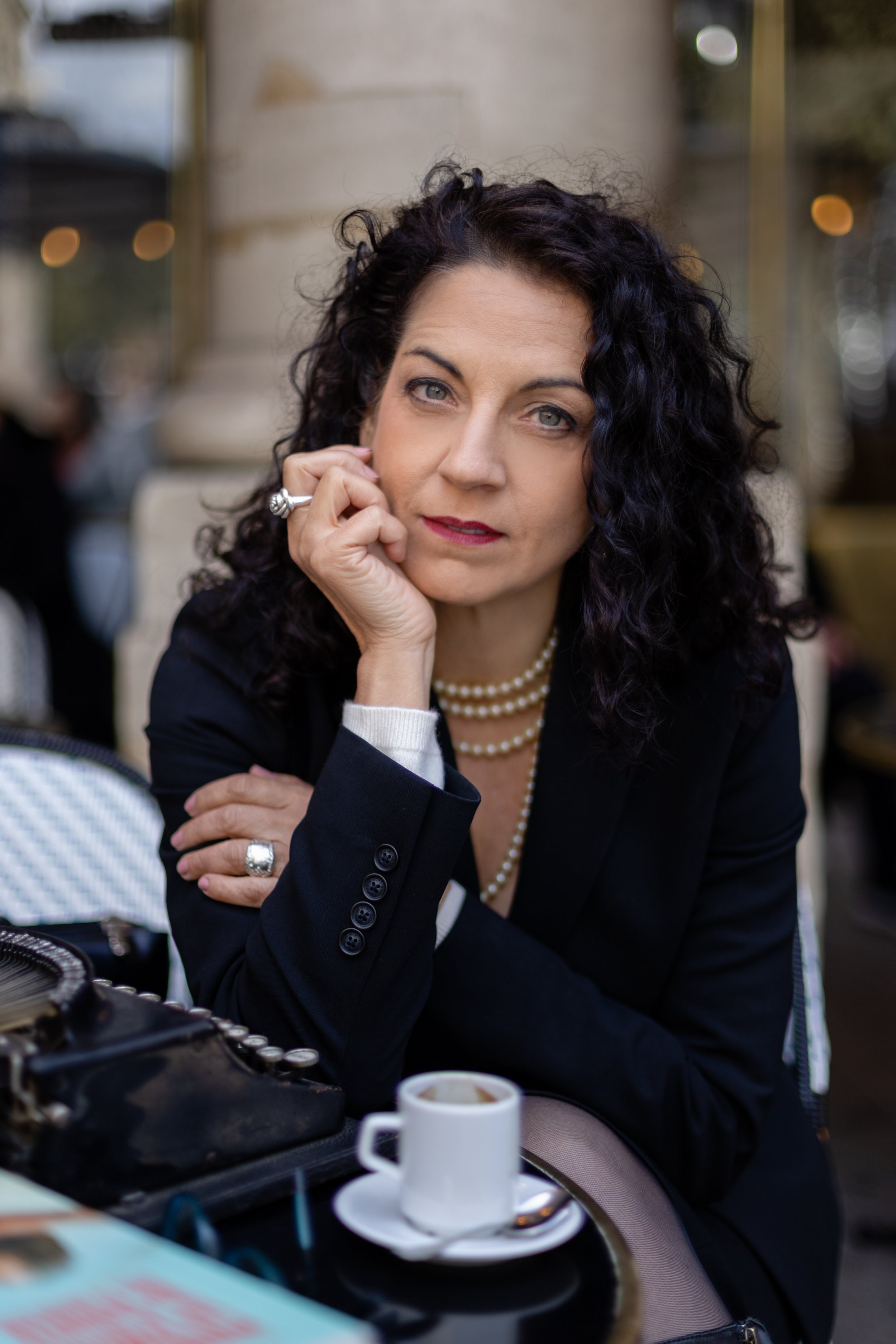
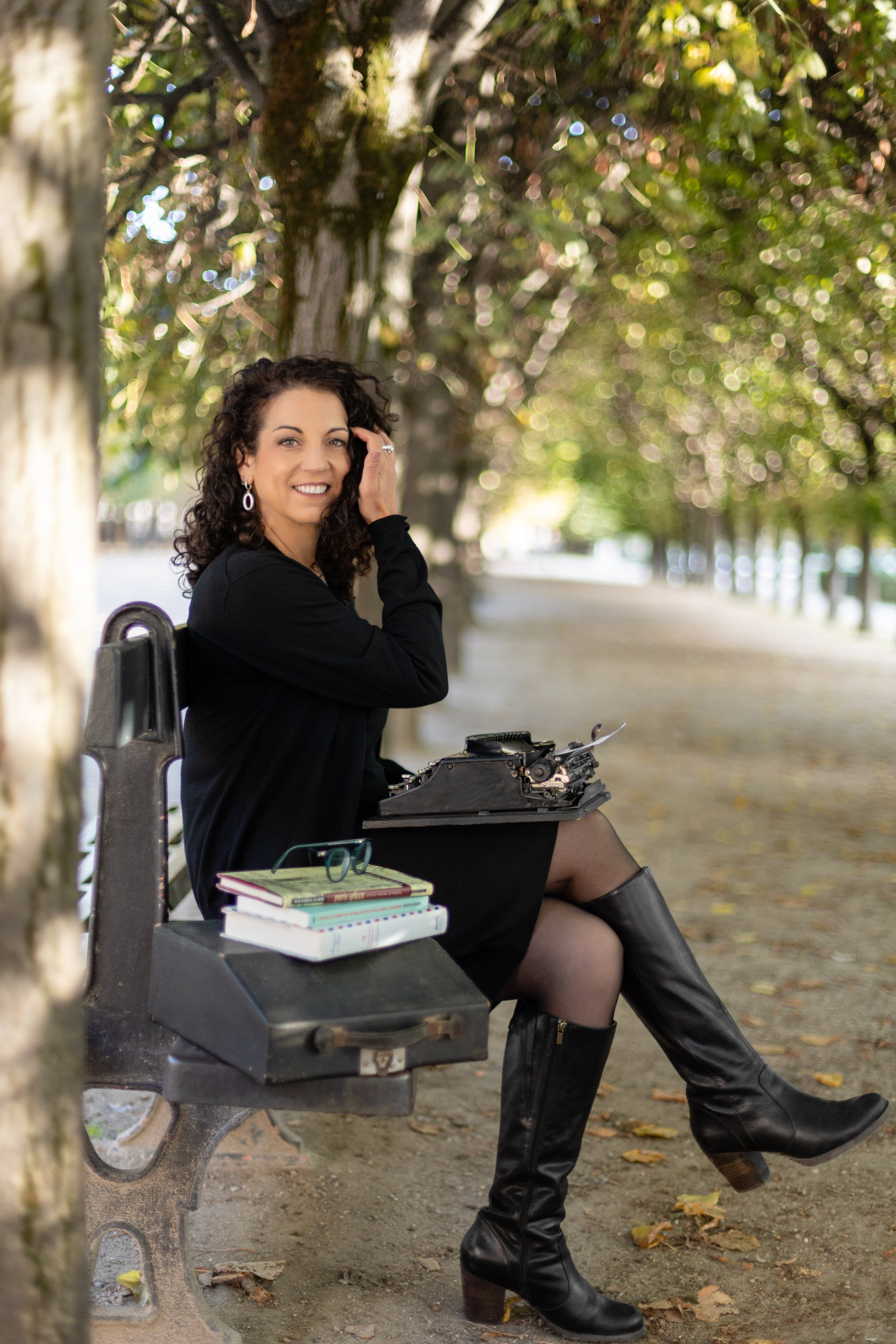


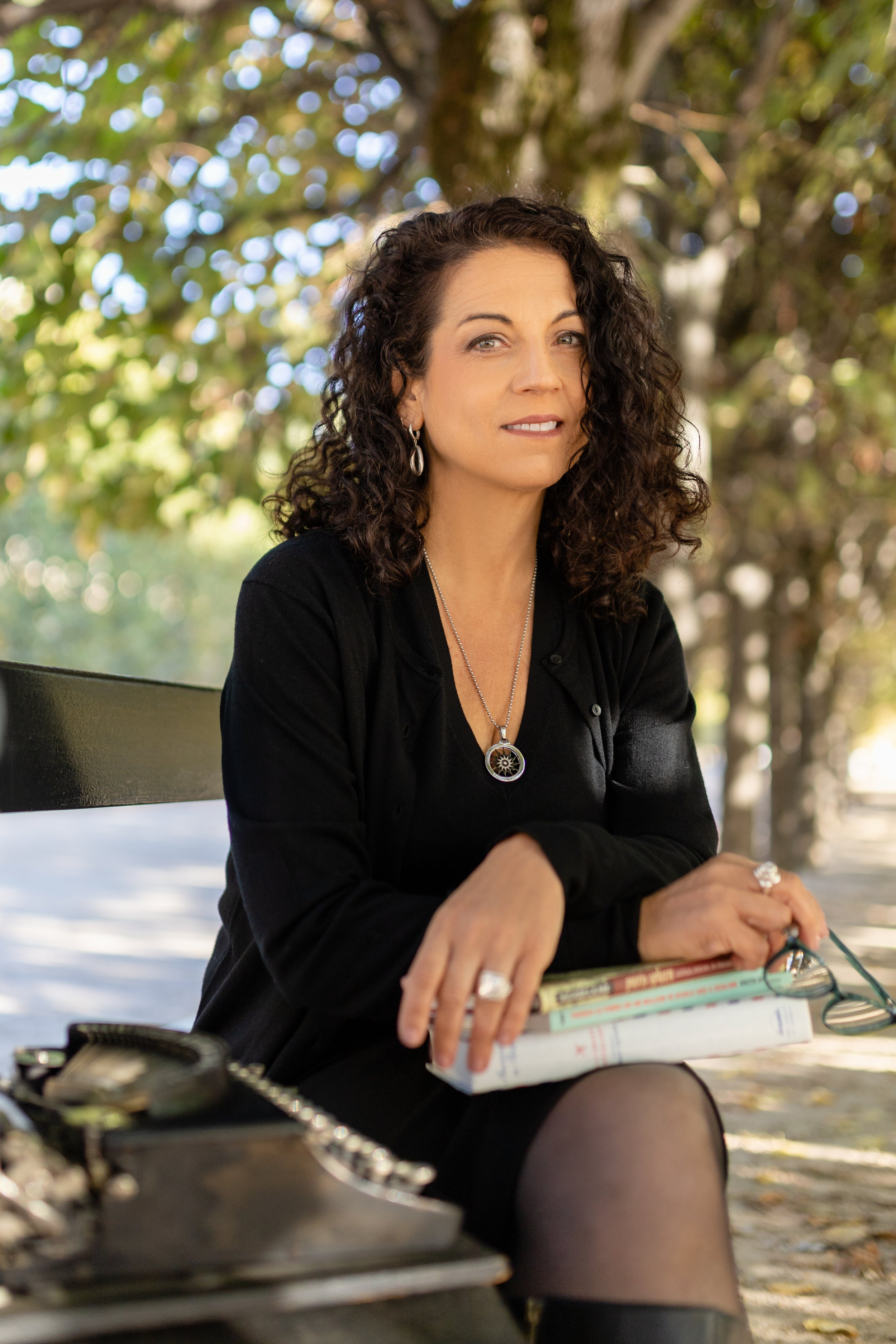

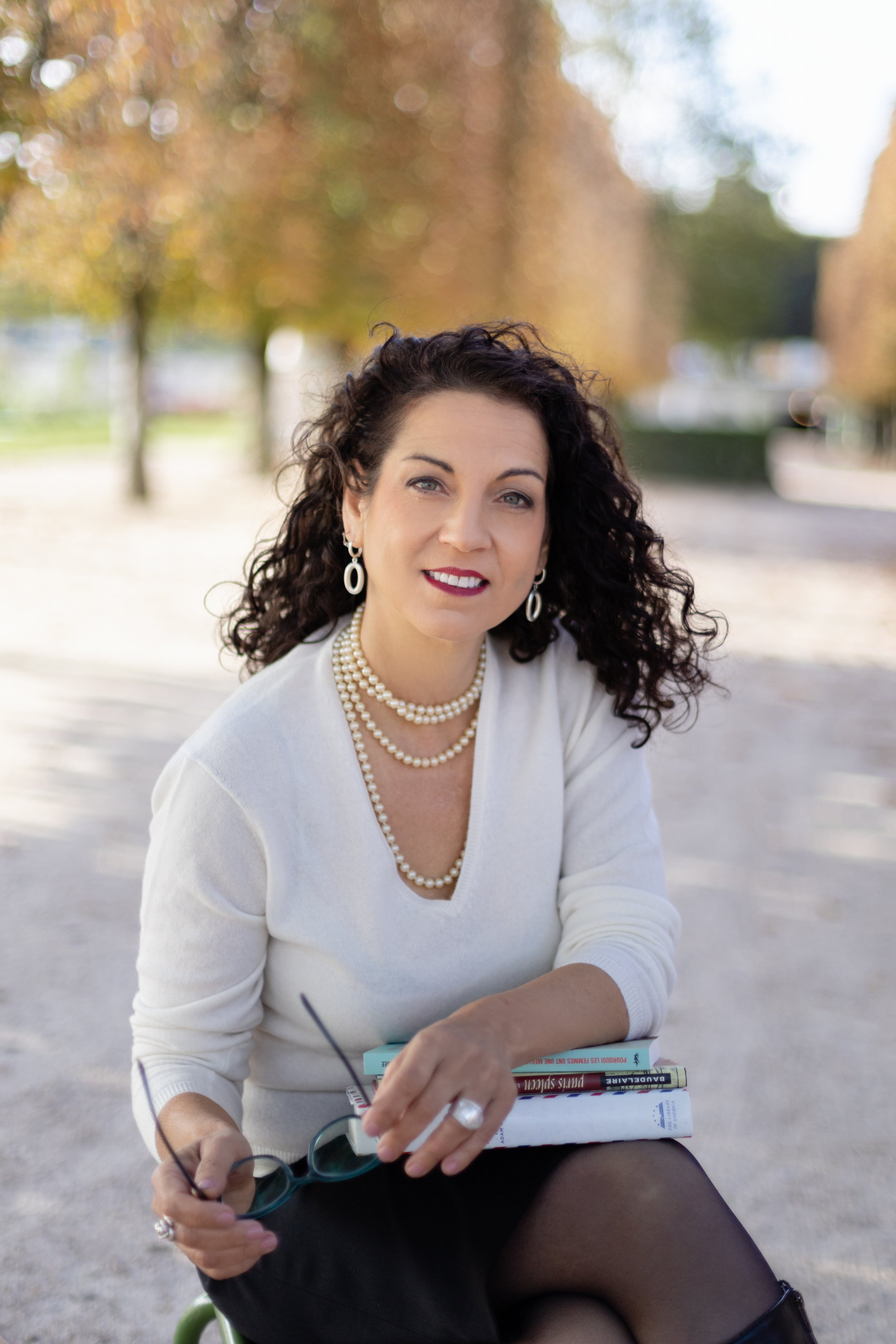




Scenes from Serbia
I wandered around the old city of Belgrade yesterday, soaking in the late October sunshine and reveling in my return to the Balkans. It feels so good to see Cyrillic again.
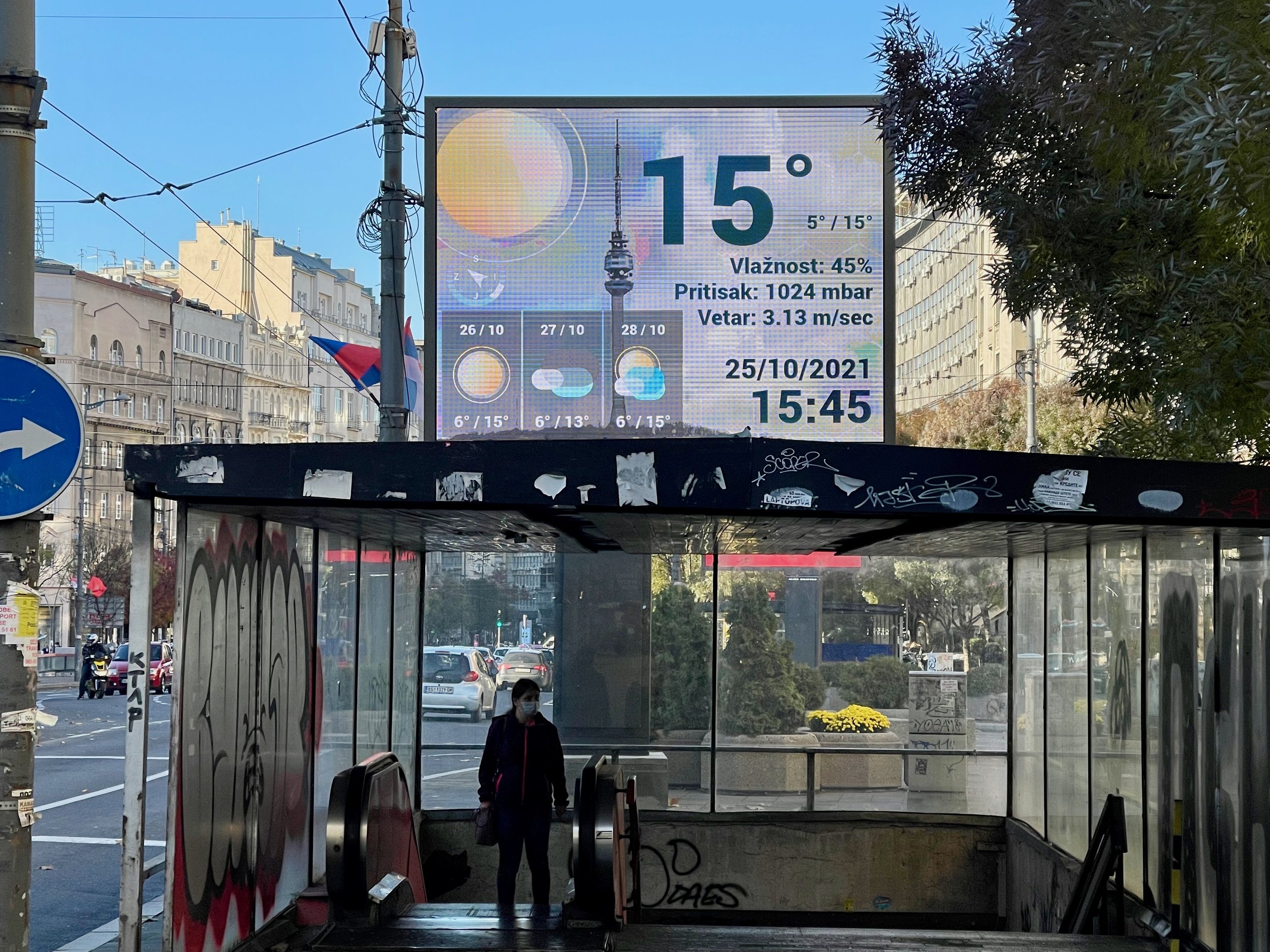
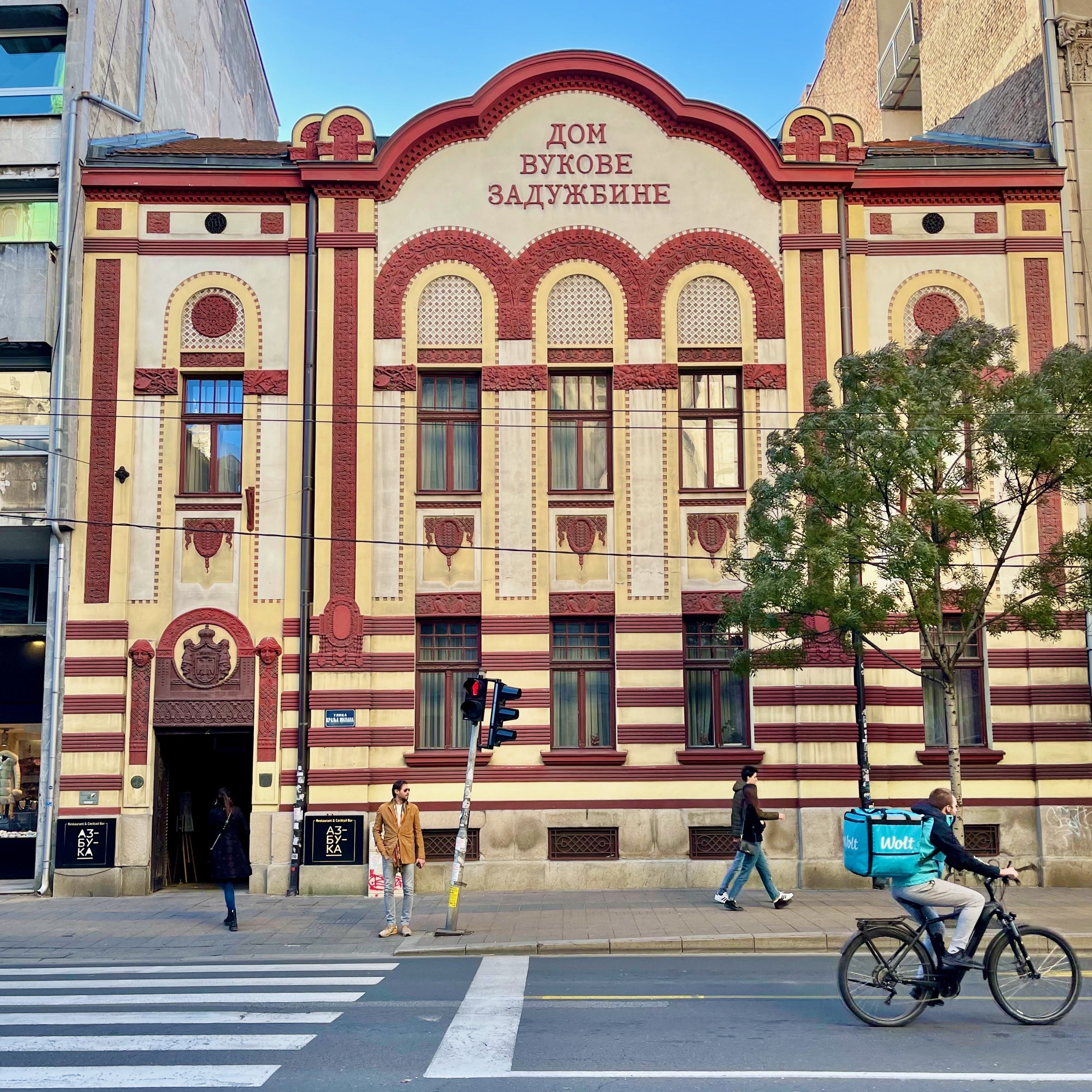
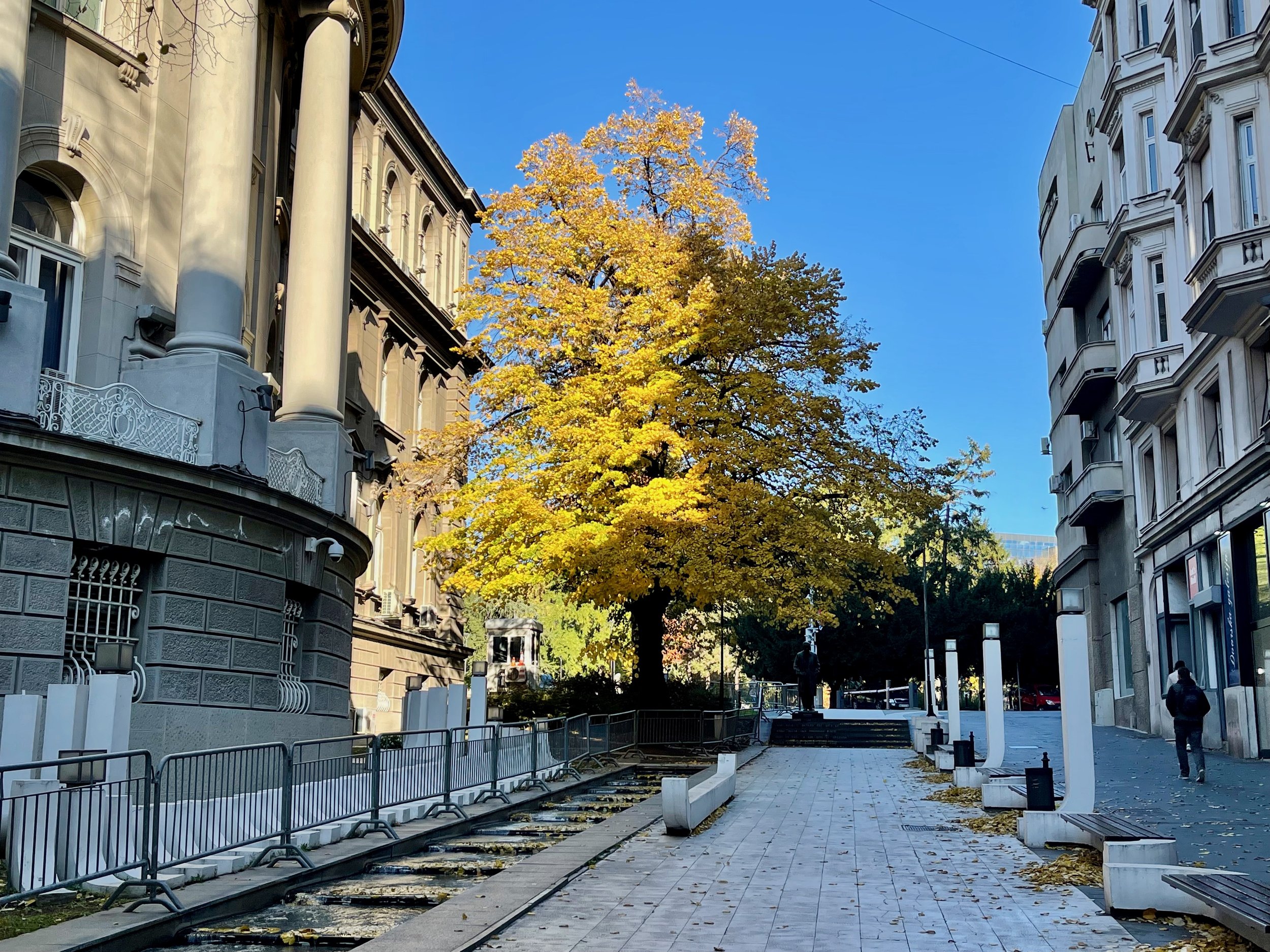
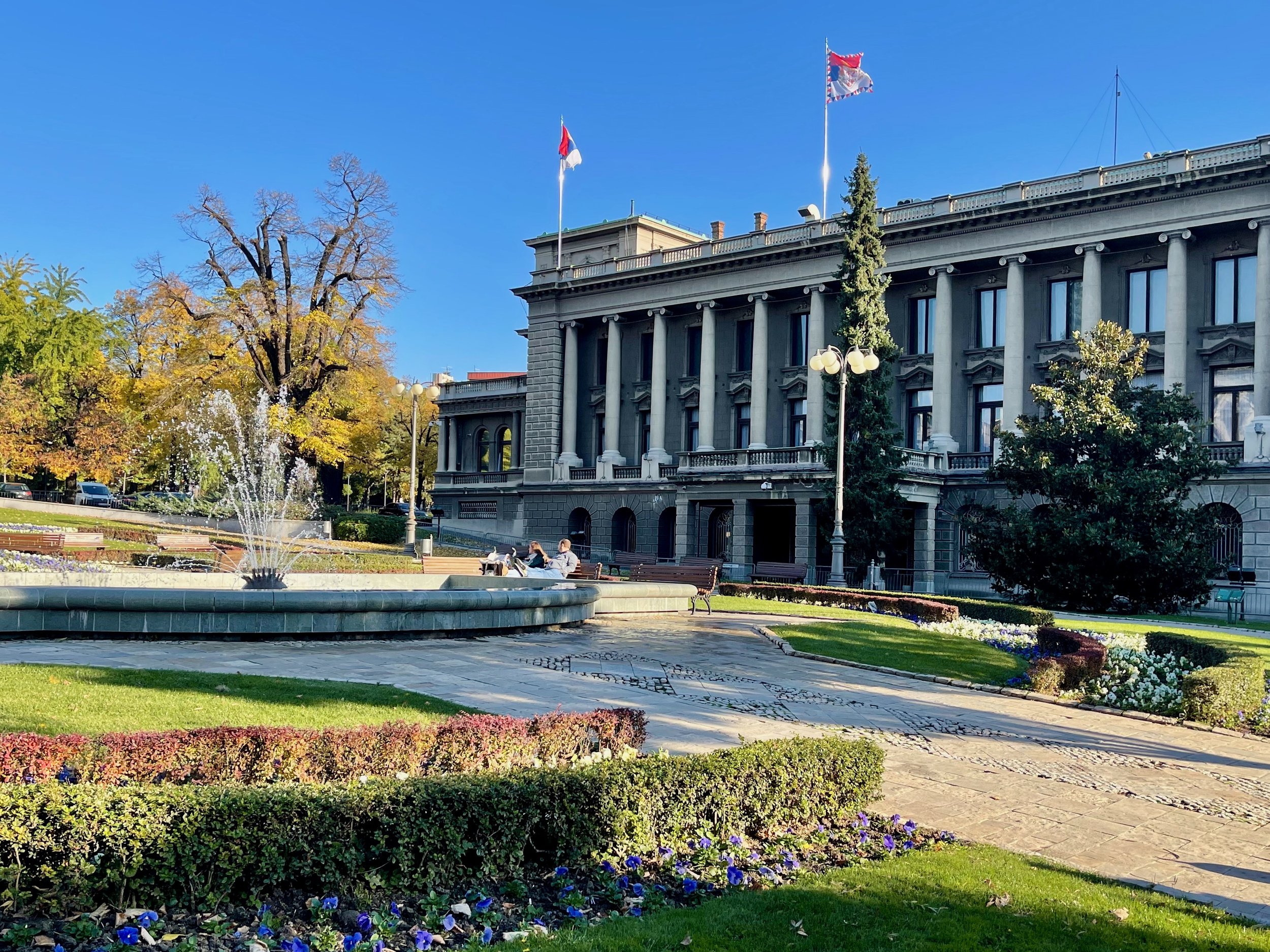
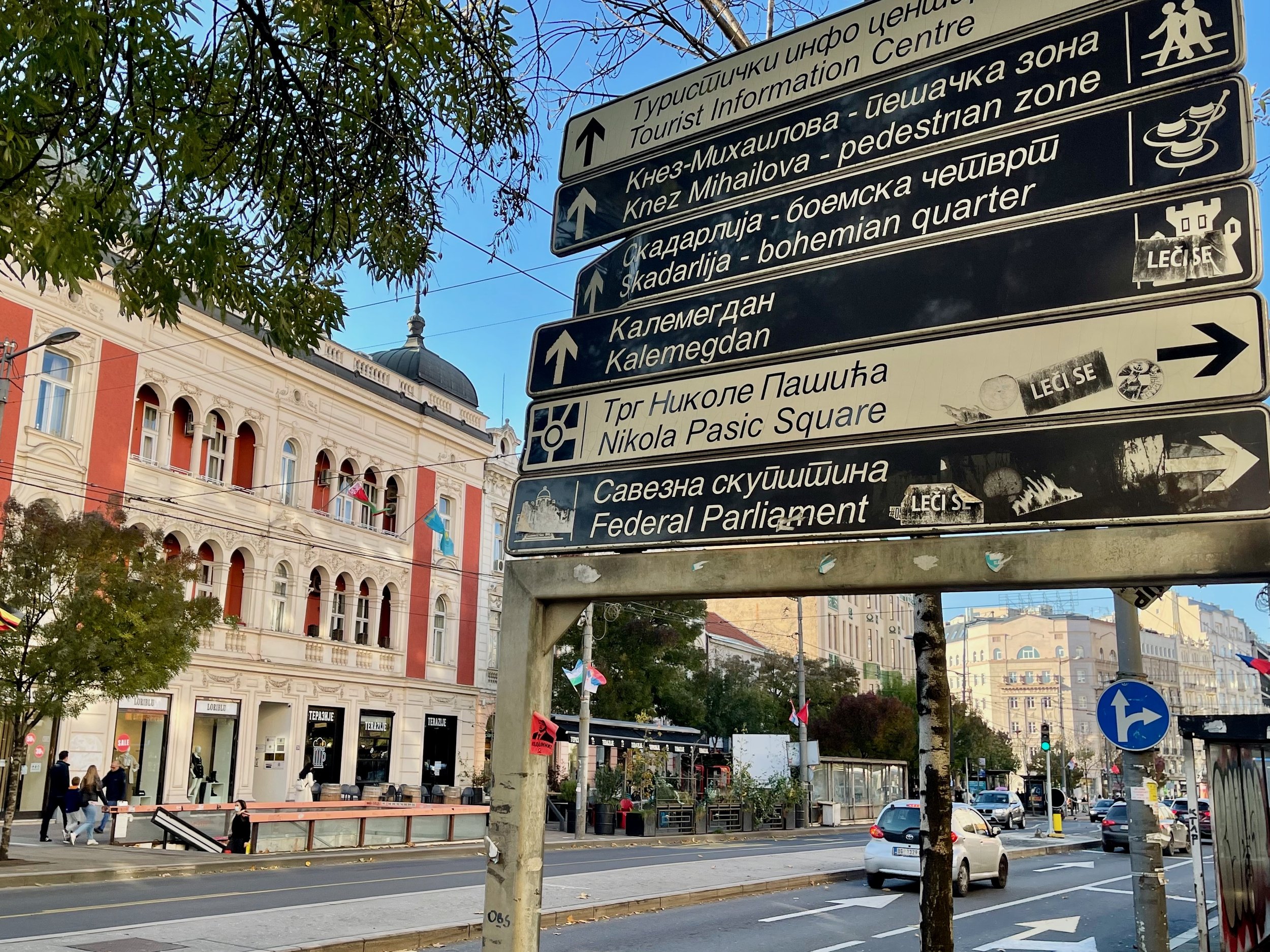
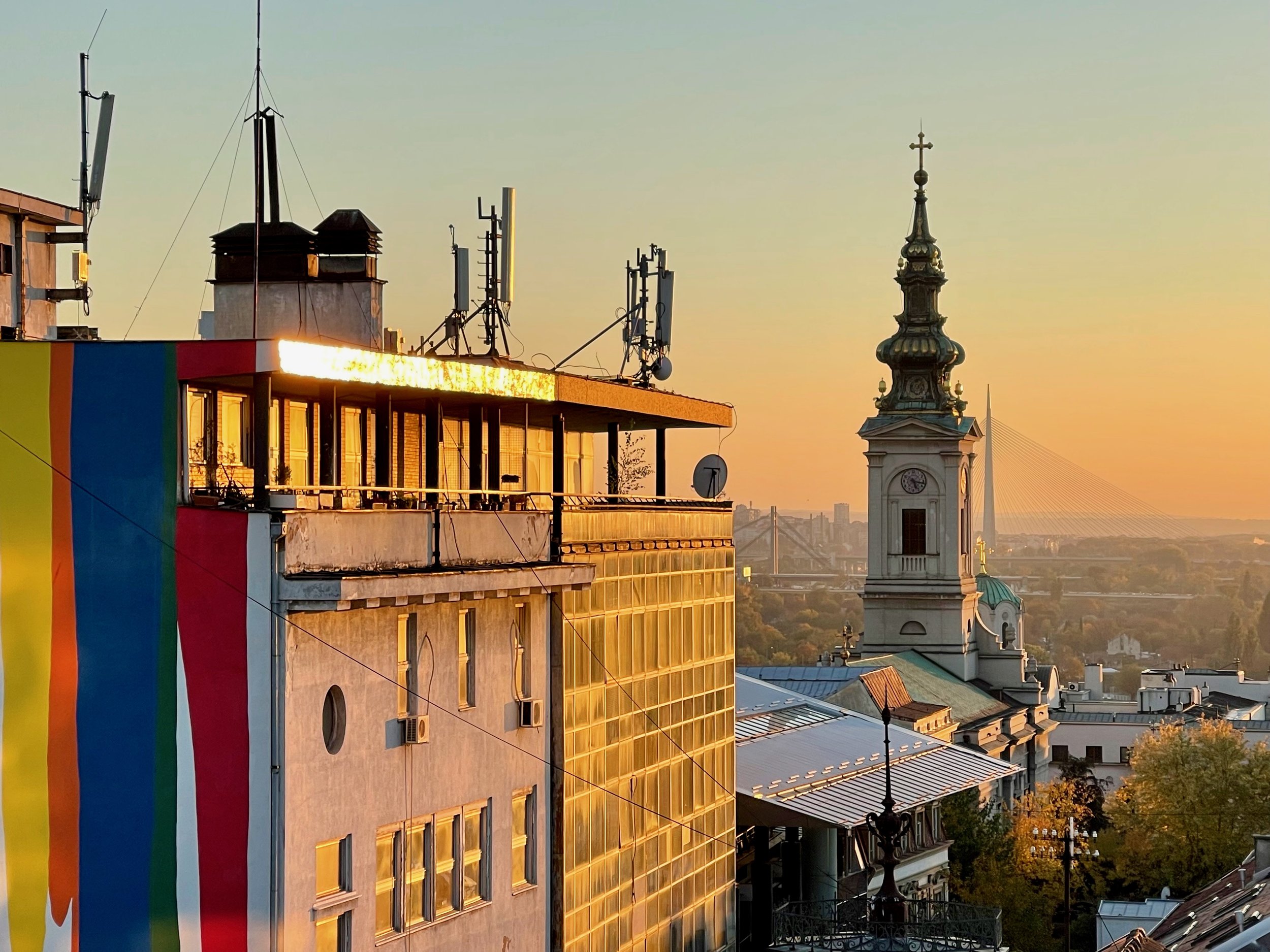
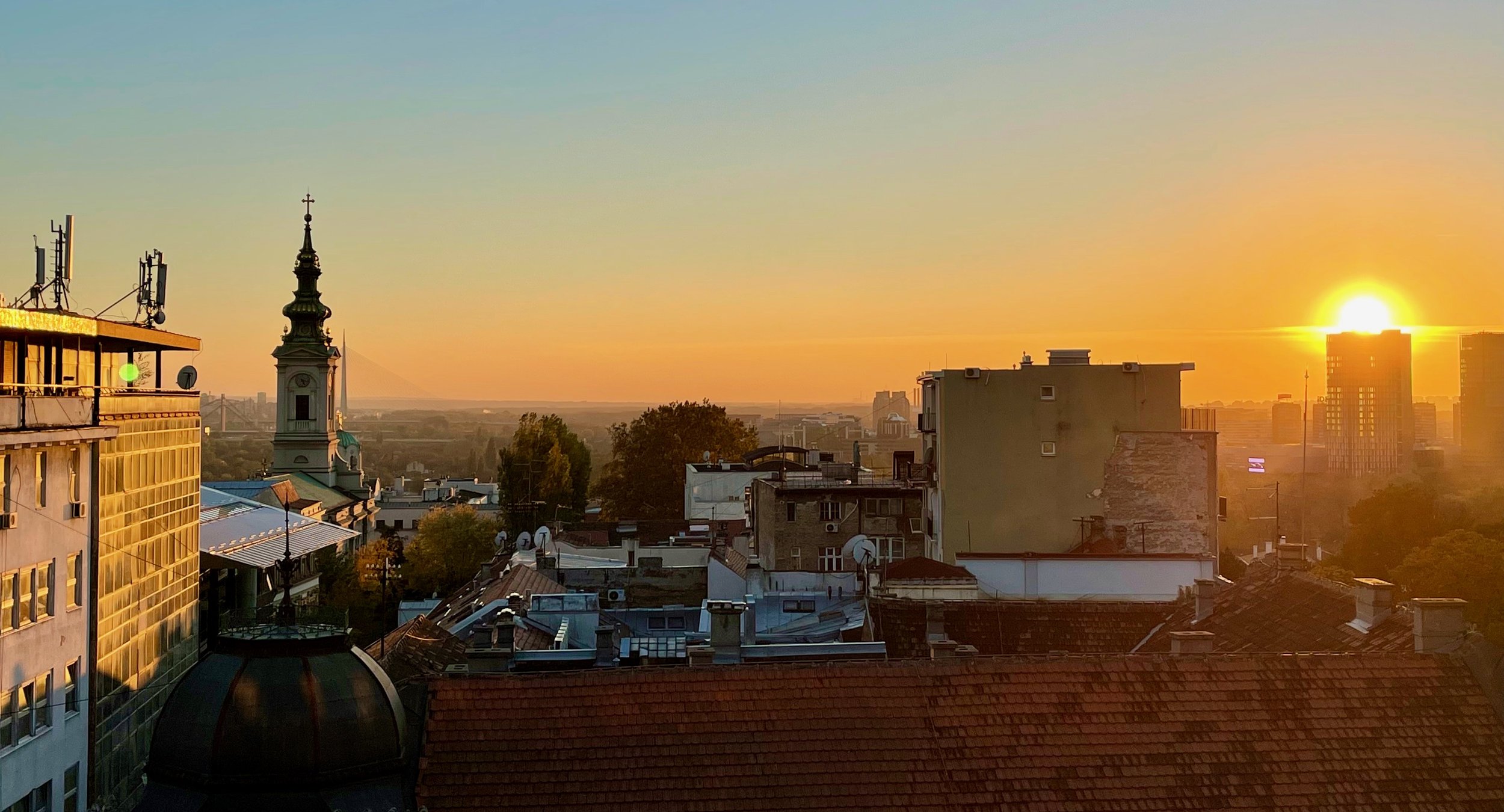
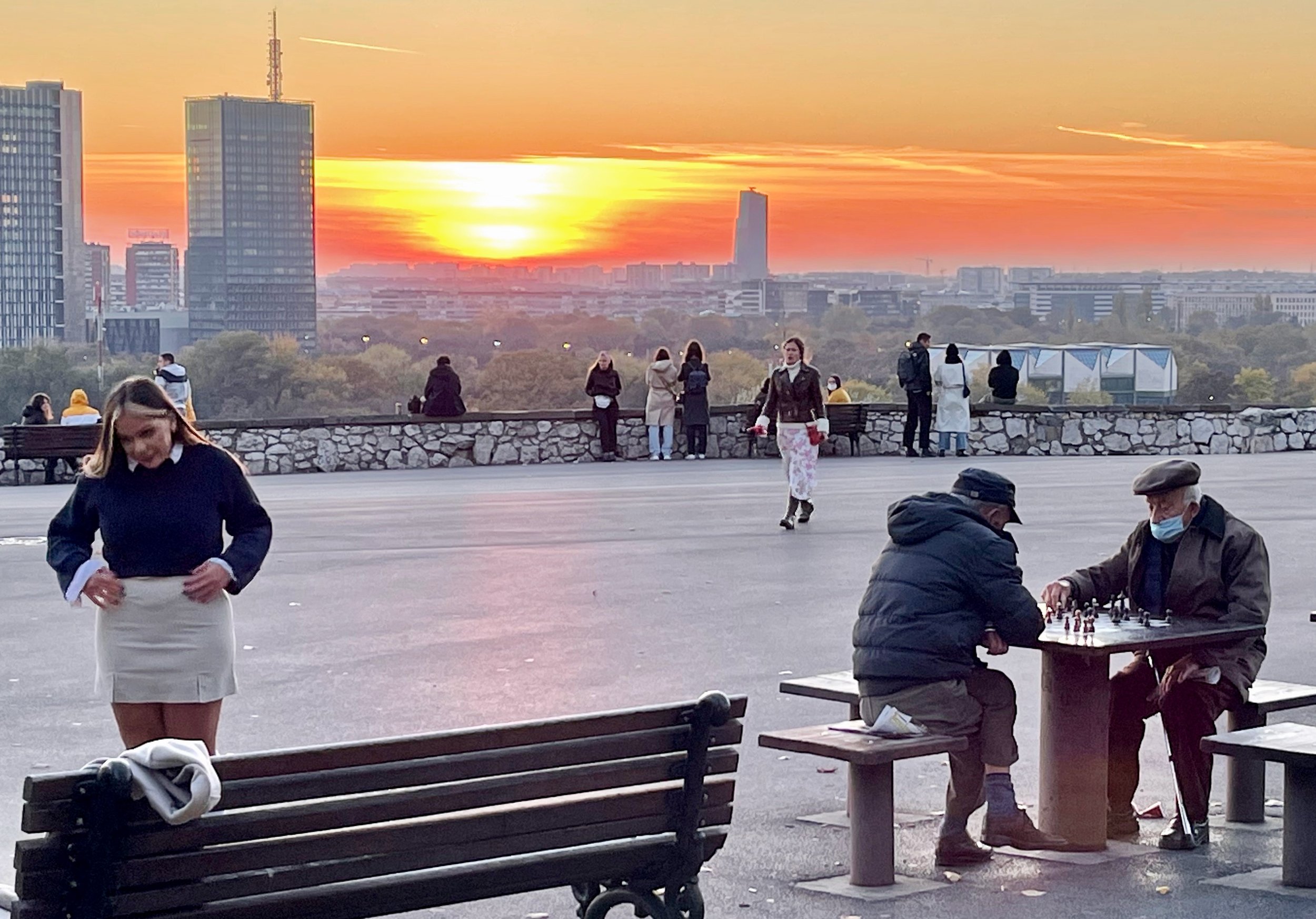

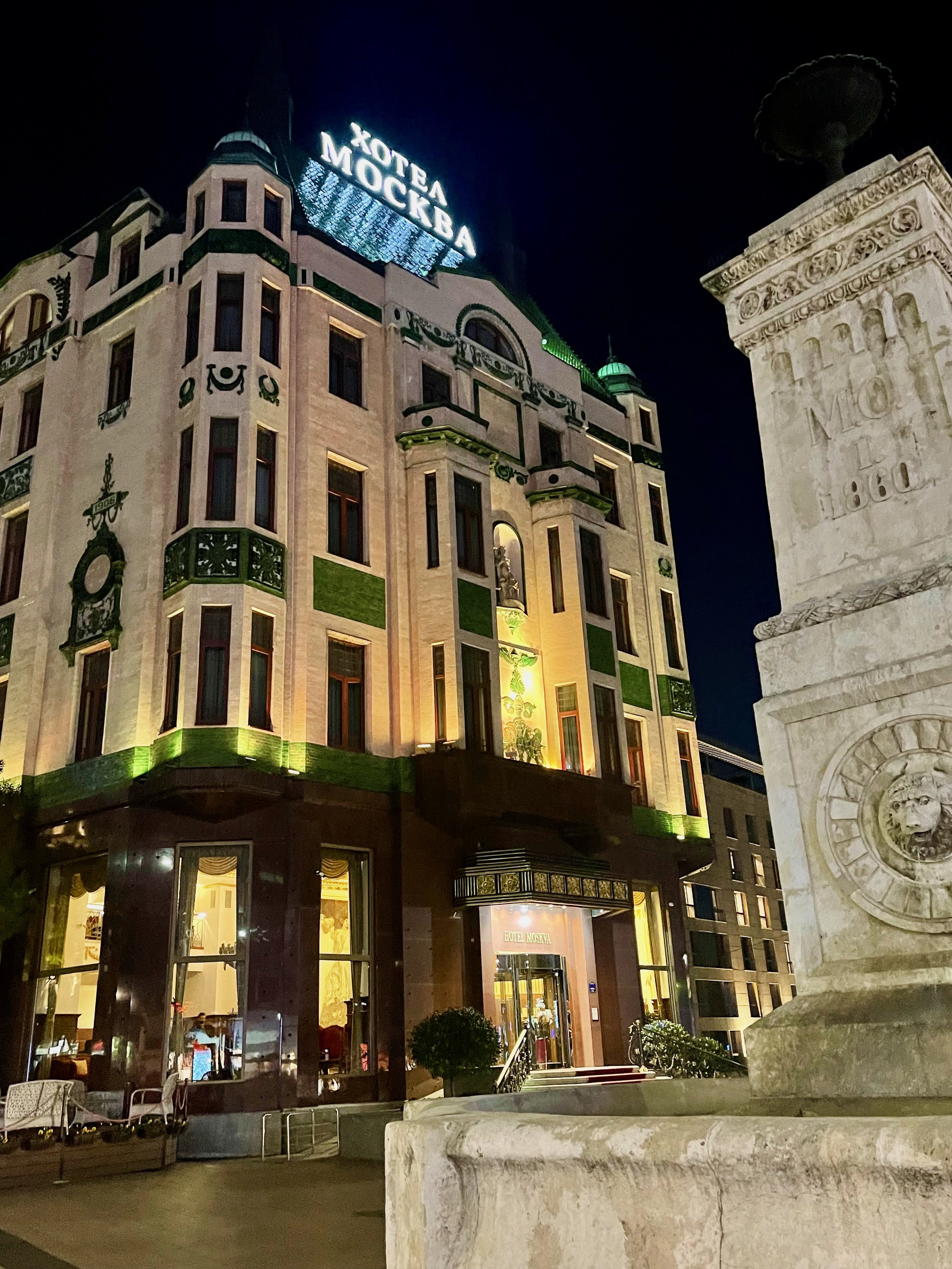
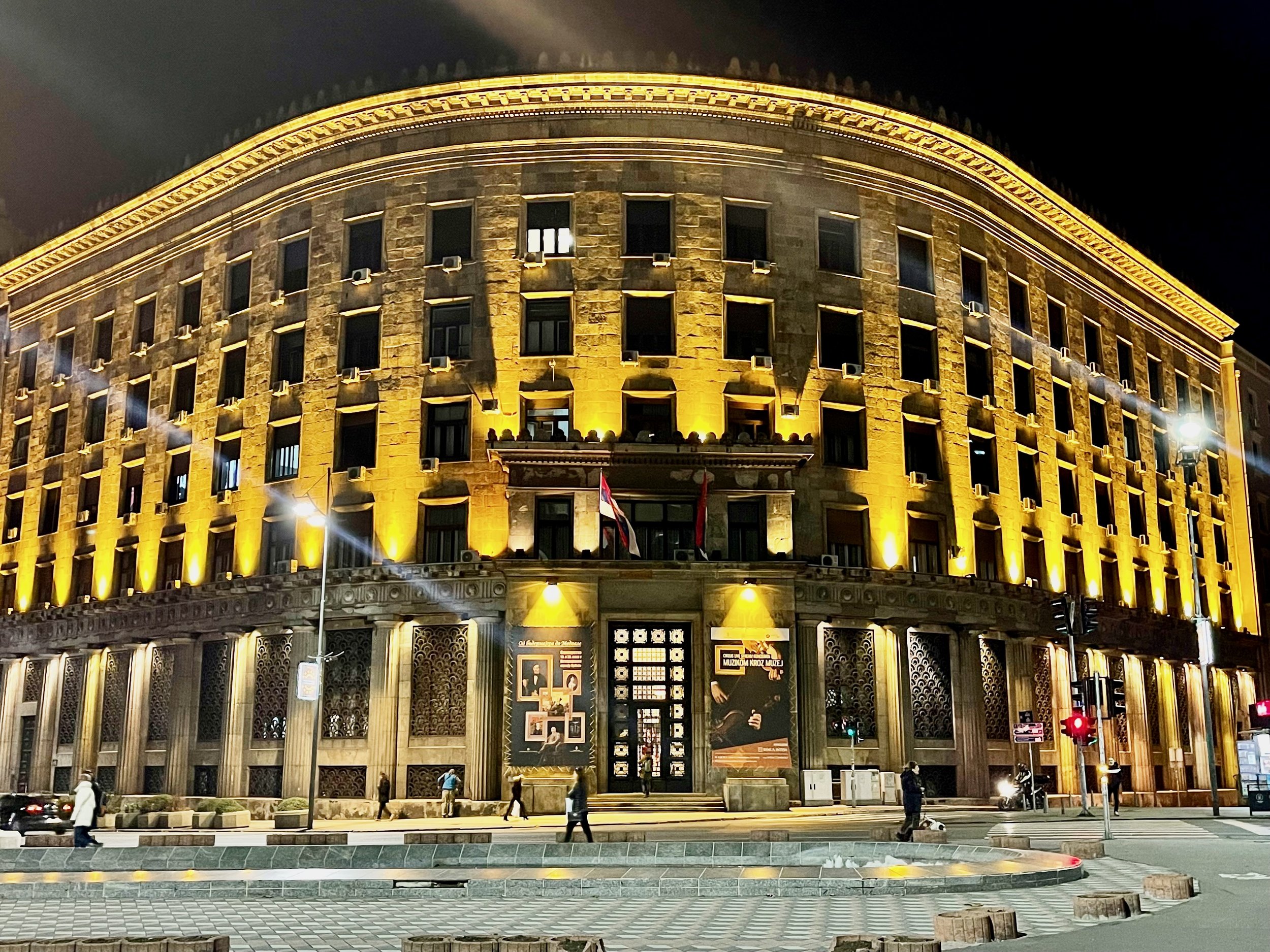

Sunset in Belgrade
I was quite sad to leave Germany, but happy to be back in the Balkans.
A conversation (in English) from Studio Solidaire of the Belgium Worker's Party →
This conversation with Iman Ben Madkhour from September 11, 2021 was just uploaded to YouTube: Kristen Ghodsee at Manifiesta 2021
Les Glorieuses Newsletter - A Transcription (in French) of my bookstore event in Paris →
"Les femmes sont vues comme des utérus ambulants", une conversation sur l'égalité salariale, Alexandra Kollontaï et l'amour avec Kristen Ghodsee
par Rebecca Amsellem (pour me suivre sur Insta, c'est là et sur Twitter, c'est ici)
"Diplômée de Berkeley, Kristen R. Ghodsee est professeure d’études russes et est-européennes à l’université de Pennsylvanie. Elle travaille sur le genre, le socialisme et le postsocialisme en Europe de l’Est. Ses articles et essais ont été publiés dans des revues telles que Dissent, Foreign Affairs, Jacobin ainsi que dans le New York Times".
Rebecca Amsellem – Je suis une grande fan. De vous, de votre podcast sur Alexandra Kollontaï (AK 47). Du livre que vous avez écrit, Pourquoi les femmes ont une meilleure vie sexuelle sous le socialisme (Éd. Lux). L’objectif de ce livre est de réfléchir au lien entre le capitalisme, ses modèles économiques et la façon dont les femmes vivent leur vie.
Kristen Ghodsee – Oui. Ce titre a été choisi pour moi par le New York Times lorsqu’en 2017 j’ai écrit un article pour le 100e anniversaire de la révolution bolchevique. Je ne sais pas comment ça se passe en France, mais aux États-Unis, quand vous écrivez pour un grand journal, vous ne savez jamais quel est votre titre jusqu’à ce qu’il soit réellement imprimé. J’ai donc été assez choquée lorsque j’ai vu ce titre. Je pense que c’est vraiment un exemple standard de ce qu’on appelle le clickbait. Il a fait son travail. Beaucoup de gens ont cliqué sur l’article.
Ainsi, lorsque l’éditeur a décidé de me contacter environ un mois et demi après la parution de l’article, il m’a demandé de conserver le titre du livre, mais en échange, j’ai pu inclure vingt pages de notes en fin de texte avec toutes les références aux études que je cite dans le livre. Oui, il s’agit de sexe, mais pas seulement. Et comme vous voyez, le sous-titre que j’ai choisi est « Plaidoyer pour une indépendance économique ».
Le livre parle de maternité, de travail, de citoyenneté et de leadership. Il s’agit d’un texte très critique à l’égard du capitalisme et de la manière dont celui-ci désavantage les femmes sur le marché du travail, dans une économie de marché.
Rebecca Amsellem – Dans votre livre, vous dites que le capitalisme transforme notre sexualité en marchandise et utilise nos peurs et notre manque de confiance pour nous vendre des services inutiles. Pourriez-vous expliquer pourquoi le capitalisme, en l’absence de réglementation est mauvais pour les femmes ?
Kristen Ghodsee – Il existe un concept très spécifique dont je parle dans mon livre, celui de la discrimination statistique. Dans une économie où il existe un marché du travail pour les travailleurs, les employeurs ne savent pas tout ce qu’ils doivent savoir sur les travailleurs. Ils disposent de ce que l’on appelle en économie une « information imparfaite », et ils doivent décider sur la base de statistiques moyennes.
Ils observent donc le marché du travail et disent : « Les femmes ont généralement tendance à être celles qui s’occupent des enfants, mais également des parents âgés ou malades. » Les femmes ont donc tendance à quitter le marché du travail plus fréquemment que les hommes, ce qui signifie que si un employeur investit dans le recrutement d’une employée, il prend un plus grand risque, elle est moins fiable qu’un homme qui, lui, ne va pas avoir d’enfant. Mais elle coûte moins cher, c’est le seul motif pour qu’un employeur l’engage.
Ainsi, dans une économie de marché, le salaire des femmes sera toujours inférieur à celui des hommes, car elle aura, statistiquement, plus de chances d’avoir un bébé.
Dans un couple hétérosexuel, s’il arrive que l’un des deux doive rester à la maison pour s’occuper d’un enfant, d’un parent malade ou âgé, la décision économique et rationnelle l’emporte, et celui qui a le salaire le plus bas n’ira pas travailler.
Cela renforce le stéréotype selon lequel les femmes sont plus susceptibles de rester à la maison, et justifie alors de moins les rémunérer. C’est un cercle vicieux sous le capitalisme, et il n’y a aucun moyen de briser ce cycle sans intervention gouvernementale.
Beaucoup de gens, surtout dans mon pays, pensent que le marché peut tout résoudre. Mais ce n’est pas le cas. En fait, le marché aggrave ce problème. Les 18 derniers mois de la pandémie l’ont démontré : le nombre de femmes qui ont dû quitter le marché du travail pour rester chez elles pour enseigner aux enfants ou s’occuper d’un proche ne fait que renforcer le stéréotype.
Continue reading by signing up for the Les Glorieuses newsletter here
Watch my lecture at the Einstein Forum in Potsdam, Germany →
“Second World, Second Sex,” delivered October 20, 2021 and chaired by the brilliant Juliane Fürst
Ich bin wieder in Berlin!
Having lunch at La Closerie des Lilas
Where Ernest Hemingway wrote The Sun Also Rises. I know it’s utterly cheesy, but I had to do it.
My latest newsletter from Paris →
Daylight in Paris
I’m writing this newsletter on a bright Autumn day in front of the fountain at the Jardin du Luxembourg. The park is filled with people lounging in the metal green chairs, soaking in the soft rays of an early October afternoon. Sunglasses and berets, artfully wrapped scarves, puffer vests under sport coats, Converse high-tops, and the occasional striped bateau, which the French wear unironically. I watch people with their feet up, their eyes closed, their AirPods in, and their faces turned up to the brilliant blue sky. Some eat baguette sandwiches. Others converse with animated hands. The tech addicted stare down at their phones, cupping their hands above their screens to block the glare. In front of me, four schoolgirls sit together on the sand beside the fountain. Behind me loom two large potted palm trees, their wide fronds swaying with the breeze on these last balmy days before they are rolled indoors for the winter. The bell of the clock on the palace chimes every fifteen minutes punctuating the steady crunch of footsteps on the pathways. The soundscape is completed by symphony of chattering voices, bicycle wheels, children’s squeals, cawing crows, and stray digital ringtones. Continue reading…
A new review of Taking Stock of Shock →
Architects of socialism built the Berlin Wall, symbolizing political unfreedom. When it fell, new walls emerged. Architects of neoliberal capitalism have built walls made of precarity and inequality, limiting what Eastern Europeans could do with their newly gained freedom. Scholarly walls separating disciplines inhibit us from correctly gauging the post-socialist landscape. Ghodsee and Orenstein’s new book, Taking Stock of Shock (Oxford University Press, 2021) breaks down these disciplinary walls and presents the most comprehensive assessment of the post-socialist transformation yet.
Read moreA new typewriter for my collection
So I was in Montmartre yesterday and I was thinking that I should head out to one of Paris’s famous flea markets to do a little typewriter hunting. On my way to the metro, I popped into an antique shop and saw a pretty beat up Remington Portable, made in the USA for the German market with a QWERTZ keyboard, dating from the 1920s or 1930s. I think it’s a Portable #2, but I’m not sure yet because I haven’t located the serial number. In any event, I spoke to the proprietor in Spanish and it was clear he had no idea how the thing worked. (Paris tip: NEVER speak in English when you want to bargain for anything. The French are much nicer if you start in another language and then come to English as a third common language. They are very sensitive about English linguistic imperialism, and I really don’t blame them. All over Paris I hear Brits and Americans speaking loudly in English and just expecting locals to understand it.)
Anyway, I bargained for this lovely machine in Spanish, and the proprietor gave me a reasonable price for a machine in this condition. I am looking forward to restoring it and addition it to my growing collection.
Two more interviews in Spanish and Catalan from my days in Barcelona
Guiseppe Savino, “"El socialisme d’estat va ser terrible en algunes coses, però beneficiós en d’altres,” La Directa, October 7, 2021
Emma Pons Valls, “Als països socialistes les relacions personals eren millors: era una manera de viure diferent" Public.es, October 4, 2021










